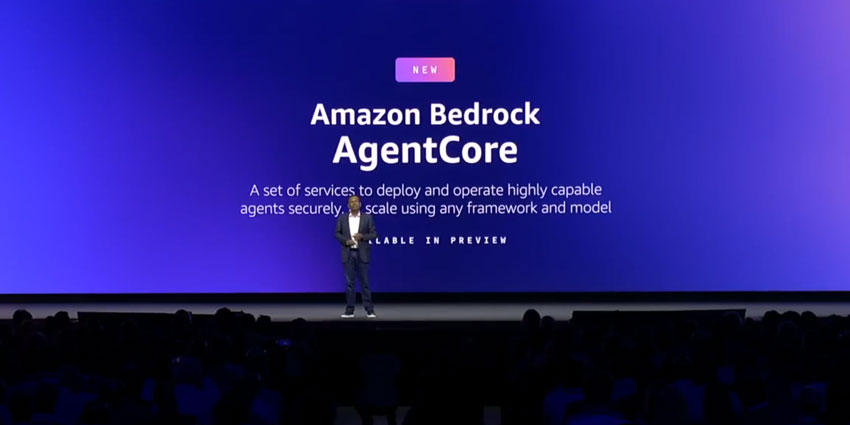Many conversational AI companies stand out in the burgeoning market, buoyed by advances in large language models (LLMs), speech recognition, and natural language technologies.
As such, choosing so few outstanding vendors proved a tricky task.
Indeed, lots of companies – including the likes of Cognigy, Google, and Kore.ai – influence the market’s direction.
Nonetheless, two conversational AI experts – James Poulter, CEO of Vixen Labs, and Bradley Metrock, CEO of Project Voice – have handpicked the following five excellent examples of conversational AI companies that stand out:
- Vonage
- Voiceflow
- Veritone
- Jaid
- Inpris HumAIns
Watch the video below or keep reading to learn more about these conversational AI companies and what makes them stand out.
1. Vonage
The first three vendors have moved from the broader conversational space to provide solutions that fit the purpose of today’s AI landscape.
Vonage is a classic case of this. It comes from the telephony background – where it provided IVR solutions – and now offers a comprehensive suite of services.
Many of these come in an API format and cross more mediums. Such mediums include smart speakers and various voice applications alongside chat and messaging platforms.
These APIs will prove critical as conversational AI evolves, according to Poulter. He said:
The interesting thing about Vonage – and those sitting beside them – is they’re having to provide APIs and services that will enable us to build the next generation of AI solutions.
“Many of these will be powered by LLMs, maybe without the traditional UX flows – like decision tree diagrams – and much more dependent on data sources.”
As a result, the APIs offered by vendors like Vonage and Twilio become much more critical, ensuring businesses have the best possible plumbing behind conversational AI applications – regardless of the front-end experience.
2. Voiceflow
Voiceflow is well-established as a conversational AI company that gives businesses the space to build prototypes of smart speaker and chatbot experiences.
Yet, having jumped on the LLM bandwagon early and developed cutting-edge AI of its own, the vendor now provides a foundational platform that brands can build on top of.
Indeed, Voiceflow quickly recognized that LLMs would upend the conventional linear, heavily orchestrated conversational AI experiences.
Moreover, it understood that the future of conversational AI hinged on a much more open dialogue, with back-and-forth conversations between bots and humans.
Noting this, Poulter added:
Look at how they’re using prompt chaining and linking different parts of their solution to create more fluid, dynamic, and organic bots. That’s really interesting, alongside its ability to now fully deploy those across the platforms you want.
Such a move from the prototype space is significant, and Voiceflow is now a practical option for many businesses getting started with implementing LLMs across voice applications.
3. Veritone
Veritone gained recognition in the conversational AI market for its synthetic voice production and Discovery products. The latter supports data analysis and management.
However, in recent years, the conversational AI company has expanded through several acquisitions, rolling up smaller solutions and bolting them onto the Veritone platform.
By doing so, Poulter suggested that it has become “one of the most robust AI platforms… particularly for media and entertainment alongside government and highly-regulated spaces.
Most interesting are the generative AI platforms Veritone is creating themselves – combining those with synthetic voice as well as acquired text-to-speech and speech-to-text technologies.
Alongside these are avatar-creation tools that the vendor obtained following its acquisition of PandoLogic in 2021.
“All that – in one comprehensive suite for enterprises – feels like an excellent partner to be looking at,” concluded Poulter.
4. & 5. Jaid & Inpris HumAIns
Each of the three vendors above has demonstrated a tremendous ability to move with market forces and recalibrate.
Now, they face the same challenge as everybody else. They must consider: how will we leverage LLMs in a way that achieves product market fit?
Jaid and Inpris are two conversational AI companies that have taken on this task head-on, grabbing the LLM bull by its horns – as per Metrock.
The former has applied conversational AI to upper-end financial services and investment management institutions.
Meanwhile, Inpris has leveraged its avatar technology and conversational AI capabilities for customer service. In doing so, it has carved out a niche in the automotive sector.
“They may be smaller companies, but we feel like they’ve done a good job,” added Metrock.
A massive part of their success is their focus on delivering for particular verticals. Both Jaid and Inpris have taken a broad technology category and enabled the sector-specific customization many companies crave.
A Lesson from These Five Conversational AI Companies
The rise of LLMs has offered an excellent measurement stick of CEO and management performance at conversational AI companies.
Indeed, how they’ve managed the hype offers tremendous insight into whether they run a tight ship – as these five vendors seemingly have. Yet, Metrock warns:
It’s not over. Just as soon as ChatGPT and OpenAI arrived and established a new status quo, there is going to be something else – and something else after that.
Such a landscape demands agility from those at the forefront of the space – which is more of a management problem than a technological challenge.
As such, it necessitates a robust culture and drive to bring in the best-fit people. That is something conversational AI companies must think more about.
For more insight into the conversational AI market from Poulter and Metrock, check out the following CX Today videos:
- Assessing the Gartner Magic Quadrant for Enterprise Conversational AI Platforms 2023
- Analyzing the Conversational AI Landscape with Bradley Metrock
- Big CX News on Private GPT, Alexa 2.0 & the ‘Godfather of AI’







